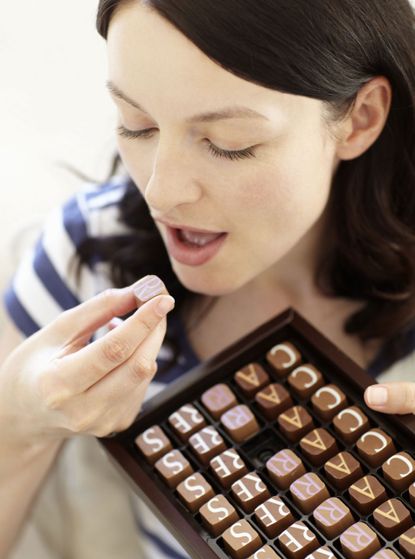Emotional Eating: How To Stop Comfort Eating


It's likely that you're all too familiar with emotional eating. It's something we all do - when we turn to that delicious ice cream after a long, tiring day at work, or that packet of crisps during a stressful hour at work.
In short - food can make us feel better. And that's a scientific fact, too. Eating sugars and fats in all of those lovely but unhealthy foods releases dopamine in our brains, which produces happy and calming effects, effectively making us feel better.
So no matter how much you tell yourself your emotional eating is simply down to lack of willpower, it's true that there's an actual reason why it's so hard to stop.
There are other common reasons why we eat when we're tired, happy, sad, depressed, or stressed - or all of the above!
Most interestingly, a lot of people are simply unaware that they turn to food in order to cope with the emotions of busy days. Many of us are terrible at eating ‘mindfully', usually mindlessly shovelling food into our mouths whilst watching the TV at night, or while we browse the internet on our phones.
Stress eating is also a very common problem - we're so focused on the cause of our anxiety that we stop realising what we're eating on a daily basis. On the other side of the spectrum, when you're overtired, you crave more fat and sugar to help you power through the day - which can be another cause of emotional eating.
And very simply, for a lot of people, eating can become one of their favourite things in life. Understandably, many of us look forward to a yummy dinner after a long day. But it begs the question - 'what do I have to look forward to if I can't eat lots of my favourite foods?'
Sign up for the woman&home newsletter
Sign up to our free daily email for the latest royal and entertainment news, interesting opinion, expert advice on styling and beauty trends, and no-nonsense guides to the health and wellness questions you want answered.
But there are ways to stop comfort eating. Mostly, these involve weaning yourself off the thinking that food is a reward, or a comfort, recognising why you stress eat, and working out when you're actually hungry.
How to stop emotional eating
Make room for other ‘treats' in your life
It's only natural to give yourself something to look forward to and the end of a busy day, or week. And it's not a problem to maintain that principle. Give yourself something to look forward to that isn't food-related - perhaps a massage at your favourite spa, a bubble bath, or a cinema date with a loved one. You'll get the kick of a lovely thing without the extra calories.
Understand your comfort eating triggers
It could be well worth noting down exactly when you find yourself most likely to crack during the course of the day, in an attempt to tackle the problem. Keep a diary, and if you find you're mostly giving in to emotional eating at, say, 4pm, make sure you're stocked up with fresh, healthy foods, so that if you need to pick, you've got foods at your disposal that won't up your weight.
Try and eat only when you're actually hungry
Most people get hungry at similar times of the day, every day. If you notice that you're starving as soon as you wake up, make sure to eat a healthy and filling breakfast first thing.
If you find that you're hungry consistently throughout the day, it could even be worth changing the structure of your daily meals, and eating smaller, more frequent meals, instead of three big meals. This could help keep cravings at bay.
Amy Hunt is an experienced digital journalist specialising in homes, interiors and hobbies. She began her career working as the features assistant at woman&home magazine, before moving over to the digital side of the brand where she eventually became the Lifestyle Editor up until January 2022. Amy won the Digital Journalist of the Year award at the AOP Awards in 2019 for her work on womanandhome.com.
-
 32 candid pictures of the Wales family, from world tours to family days out
32 candid pictures of the Wales family, from world tours to family days outWhether it's quality time with one of their children or all five of them out together, we love these candid photos of the Waleses
By Jack Slater Published
-
 32 facts about Queen Elizabeth II's Coronation that you may never heard of before
32 facts about Queen Elizabeth II's Coronation that you may never heard of beforeQueen Elizabeth II's Coronation was a monumental moment in history and the first event many watched on TV
By Lauren Hughes Published